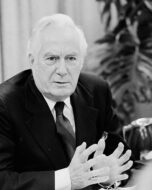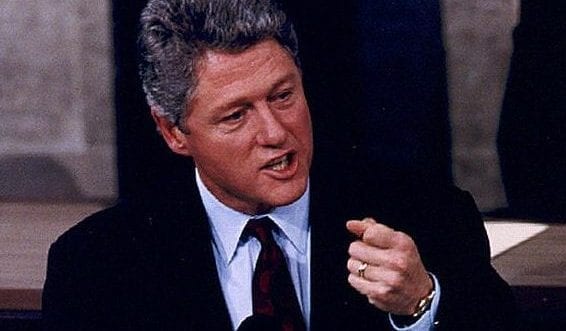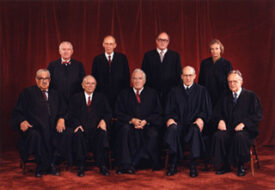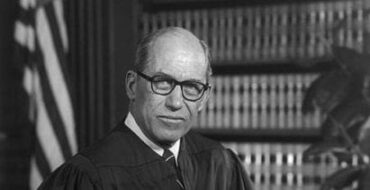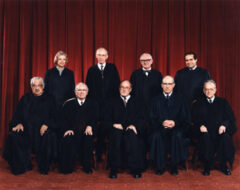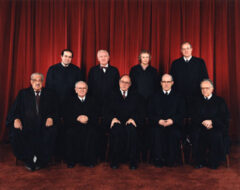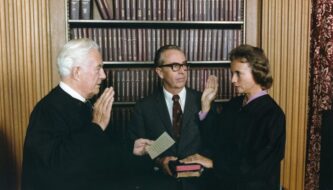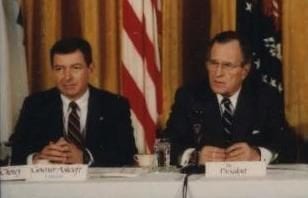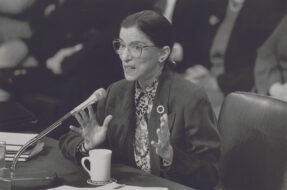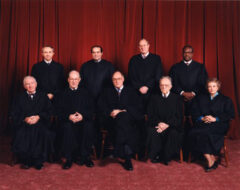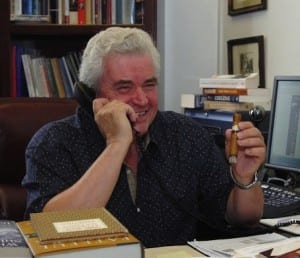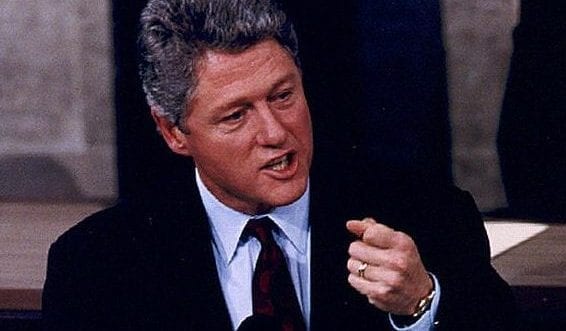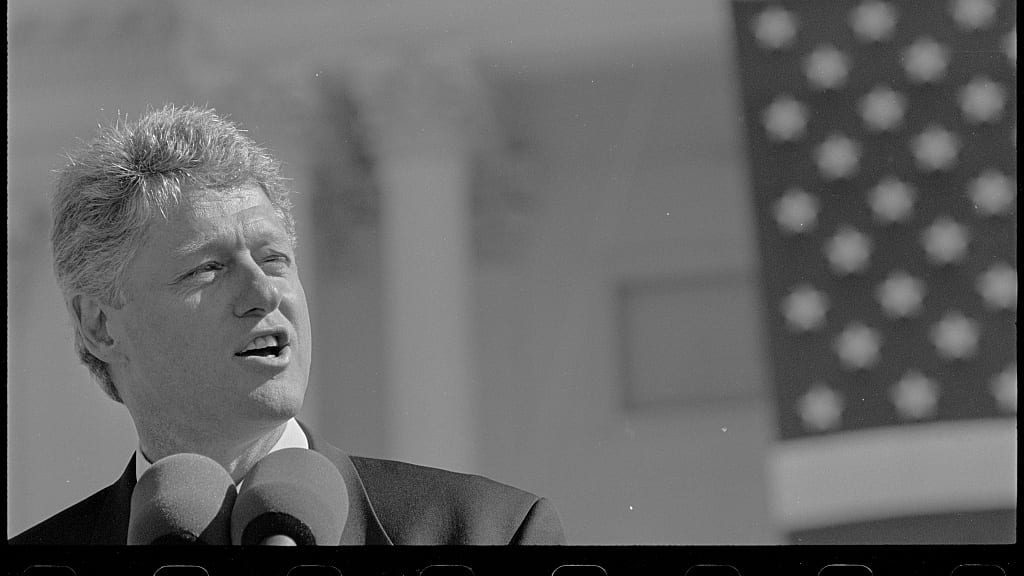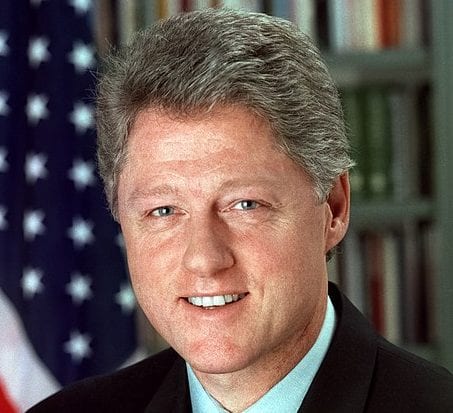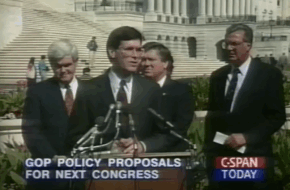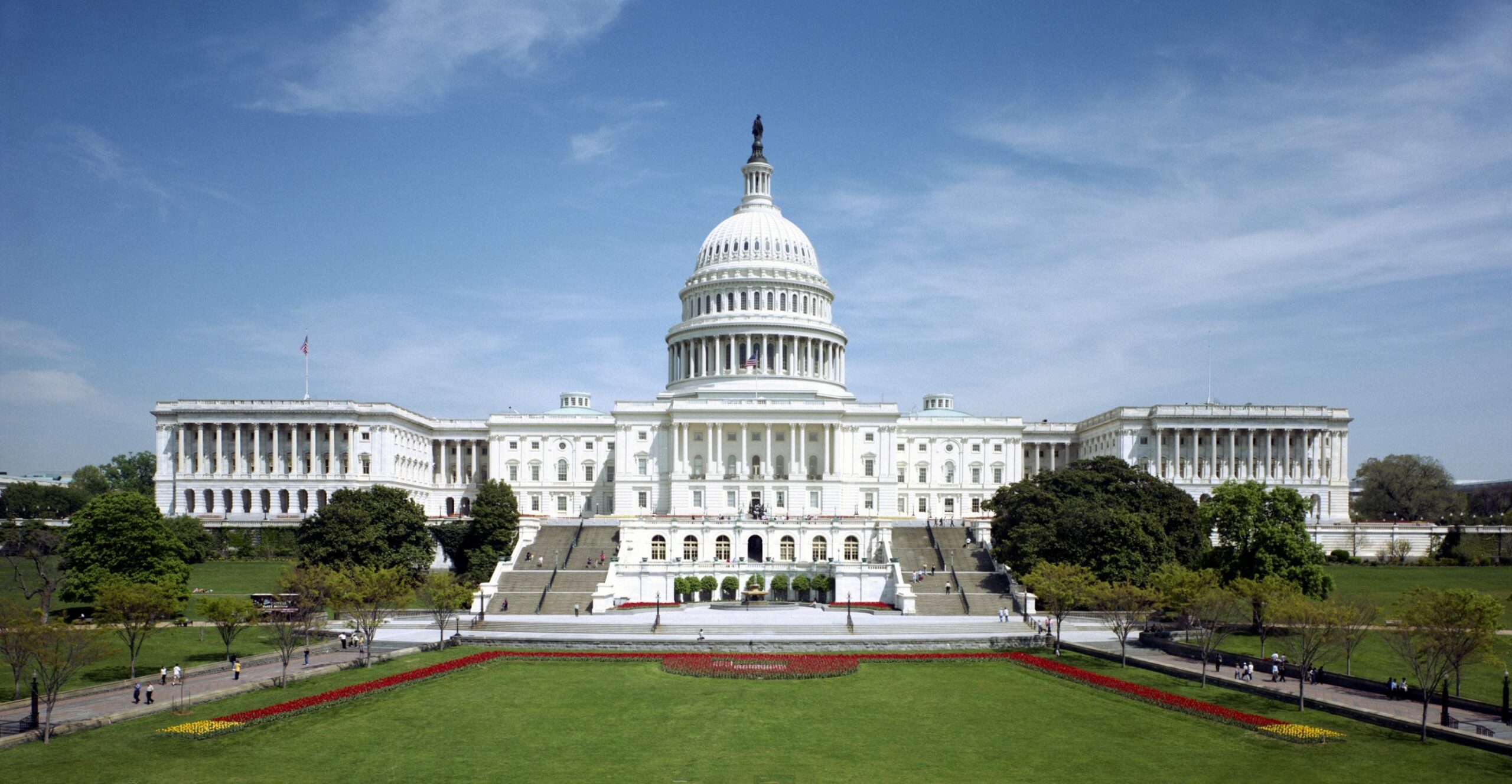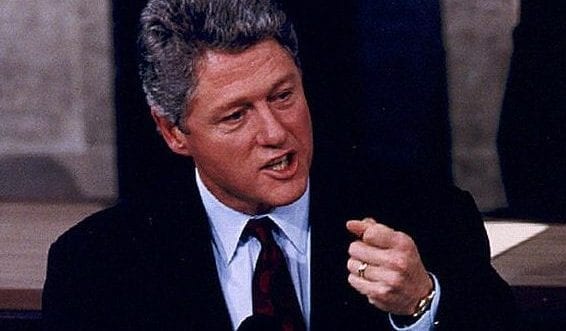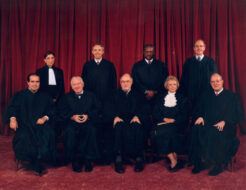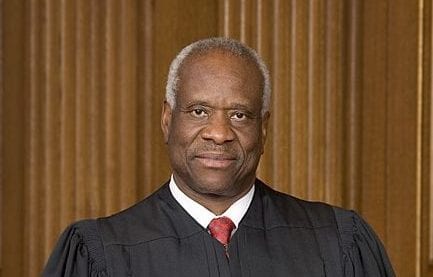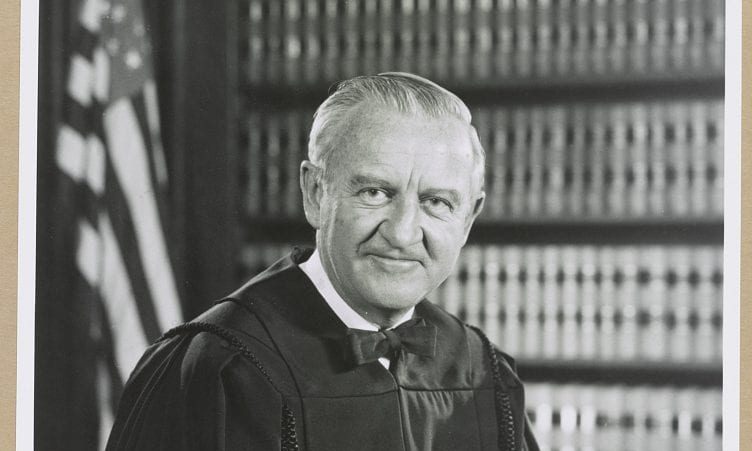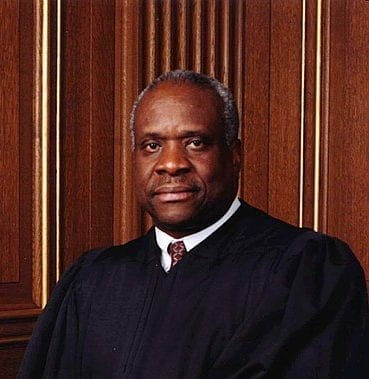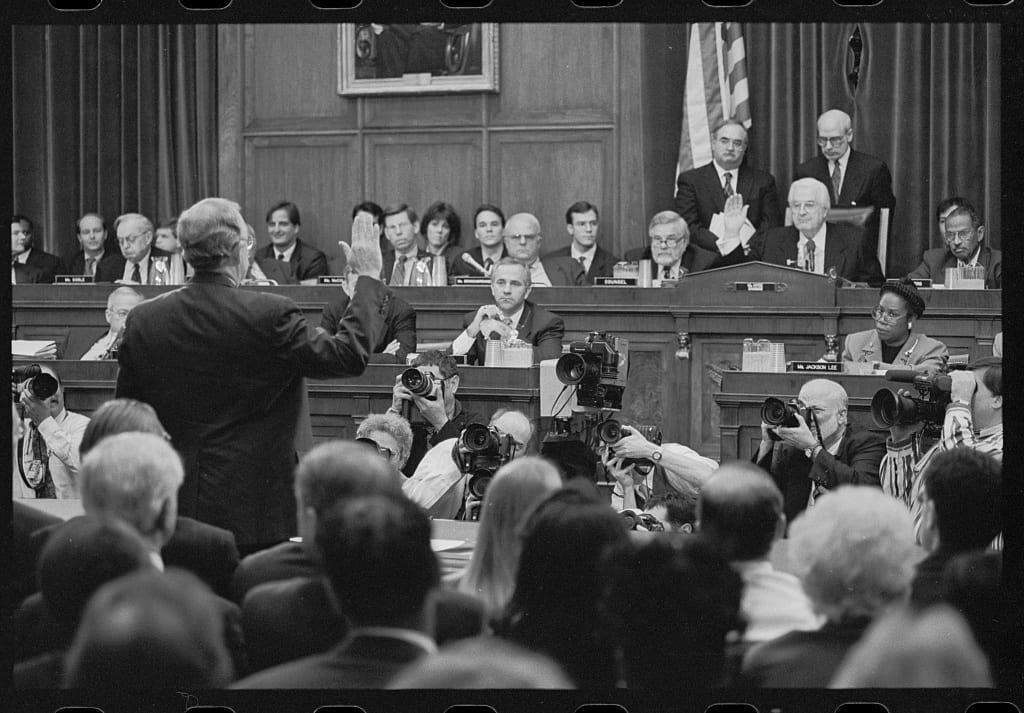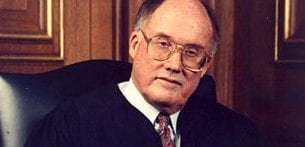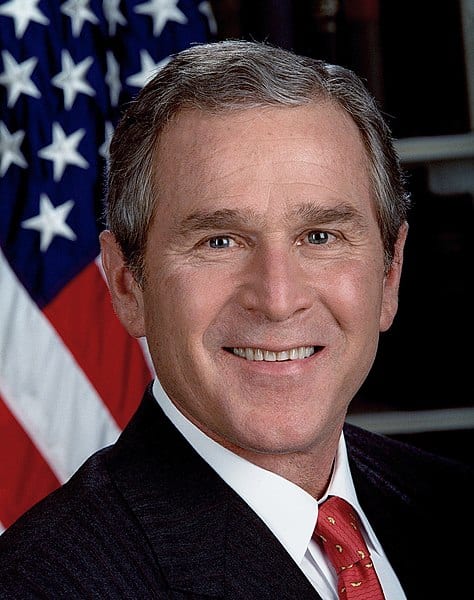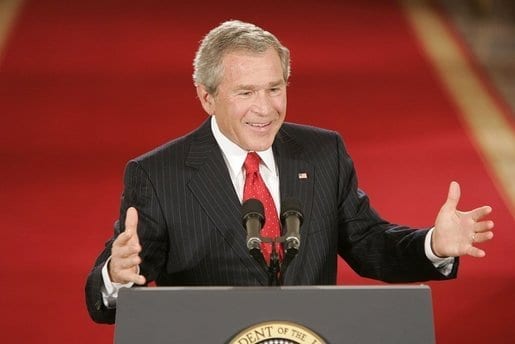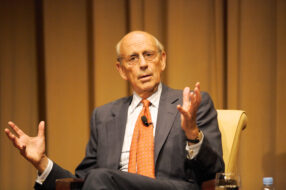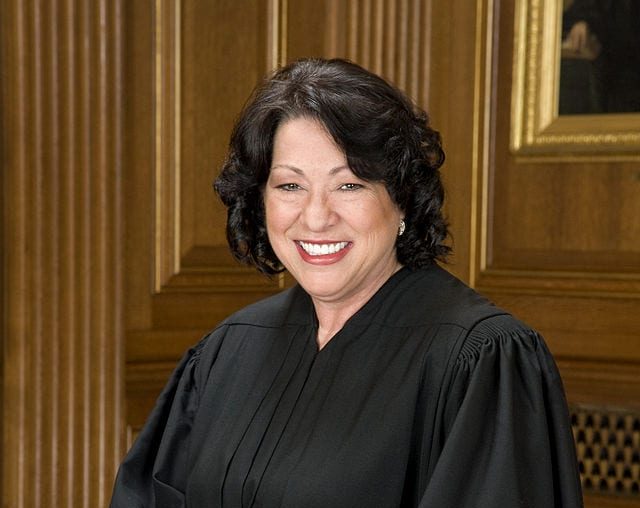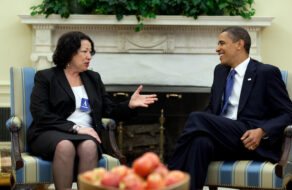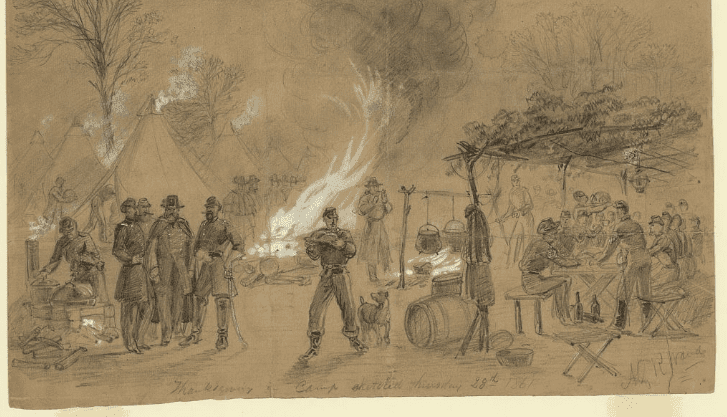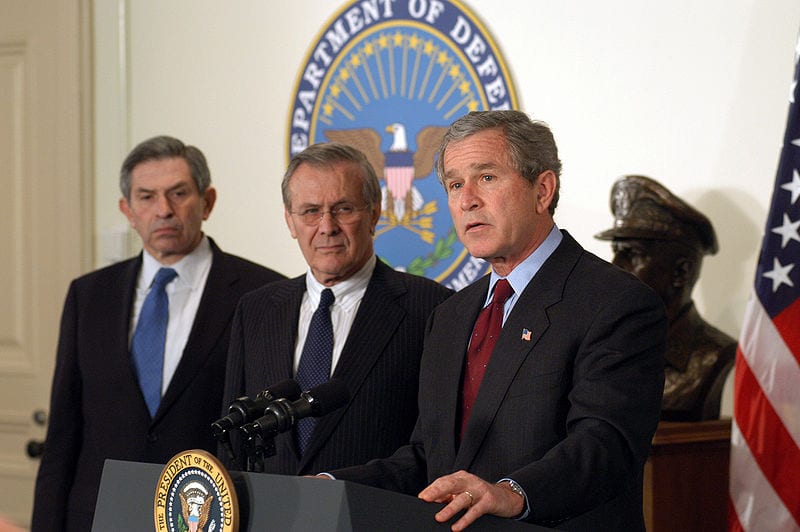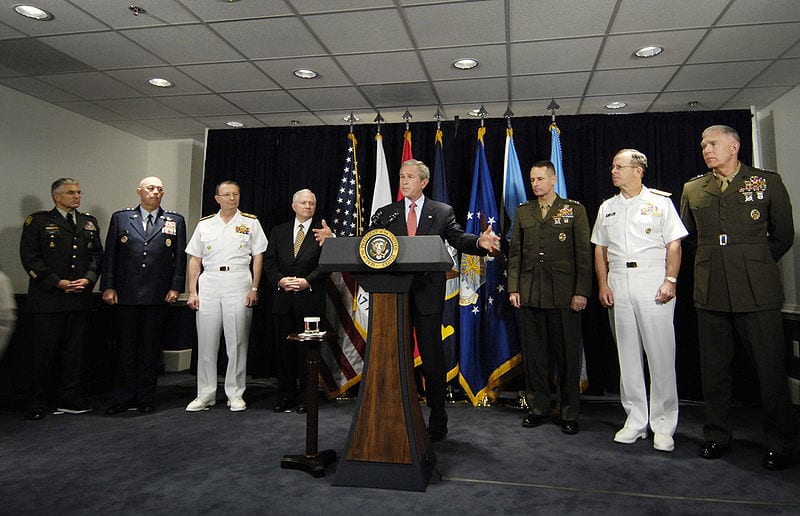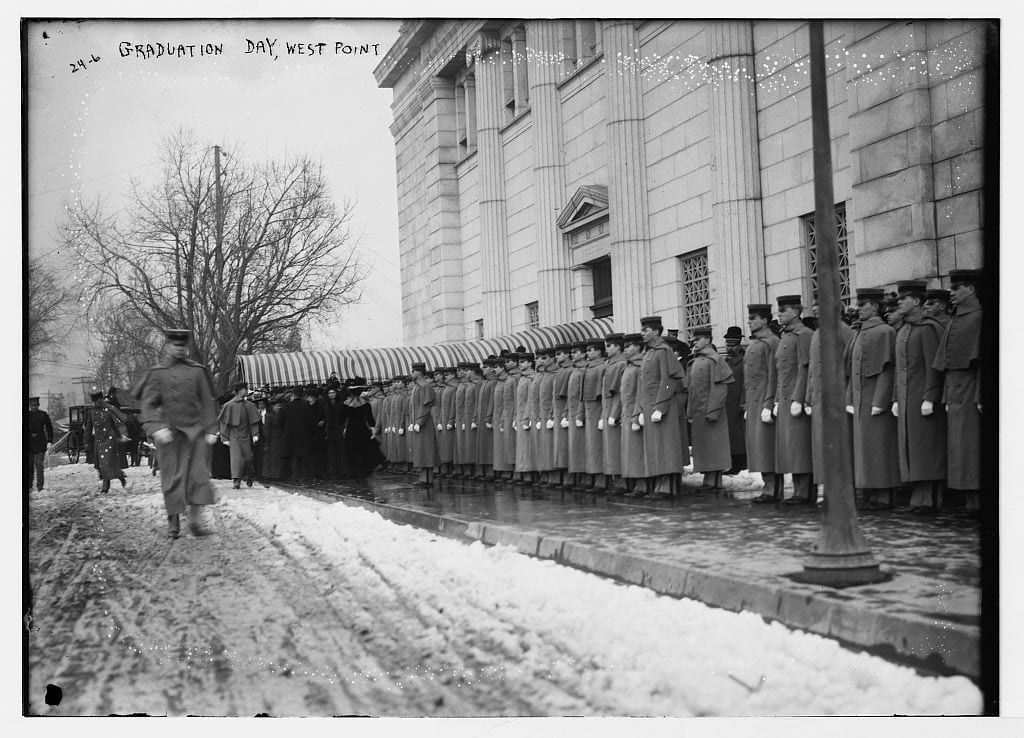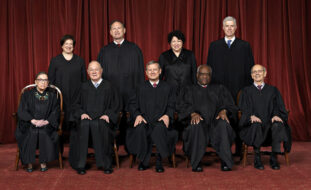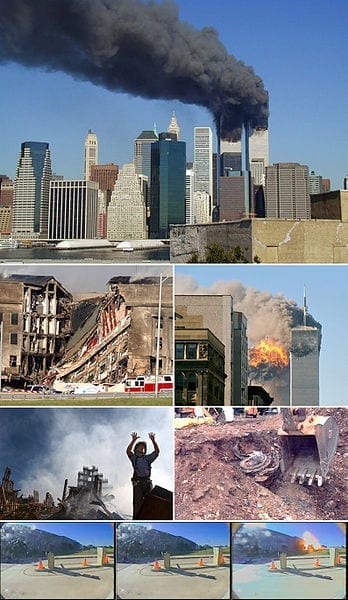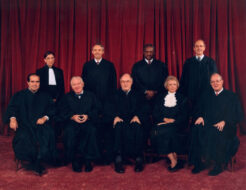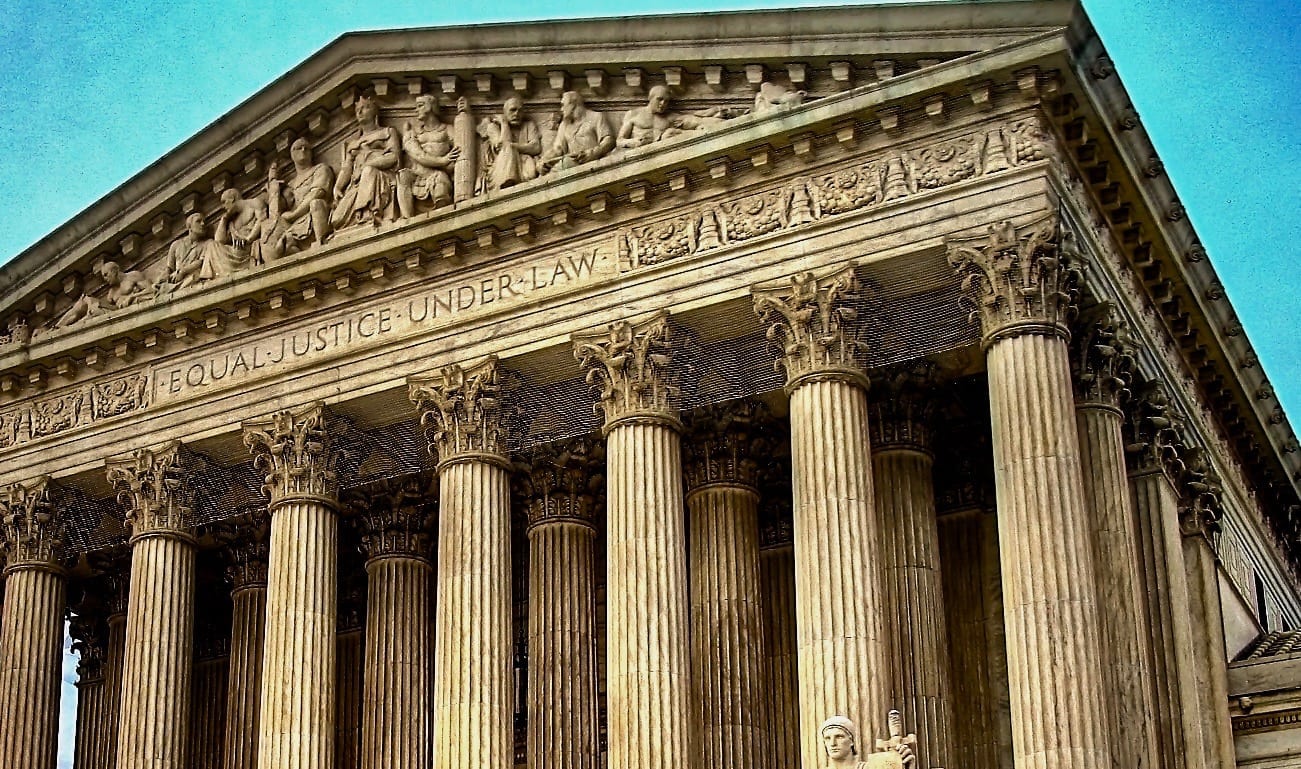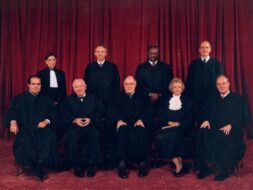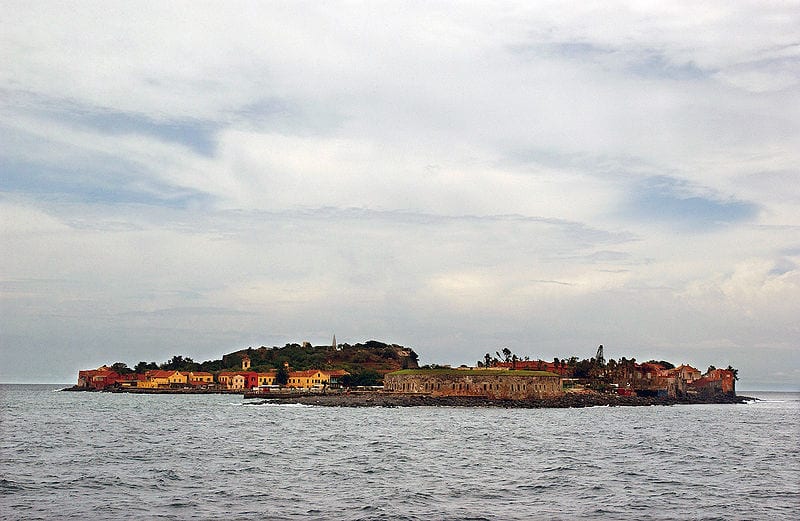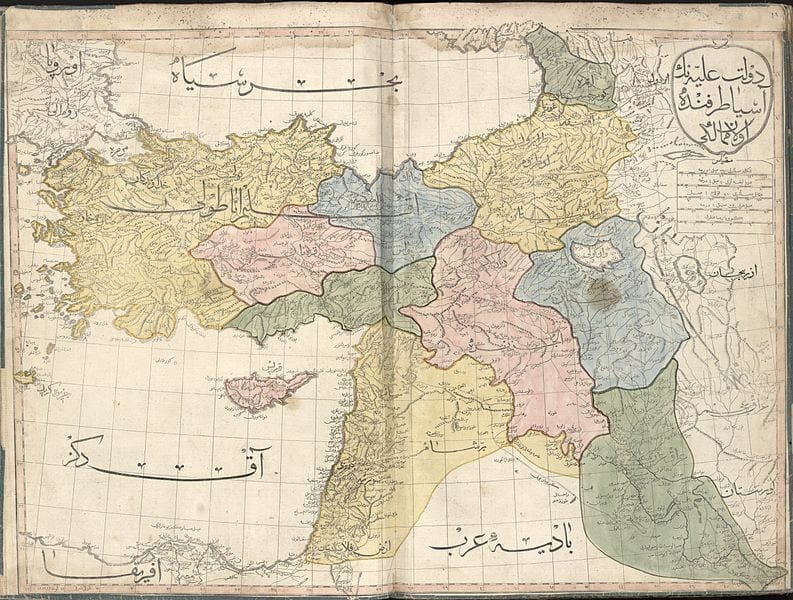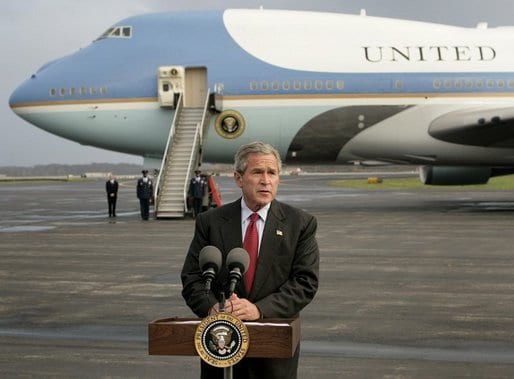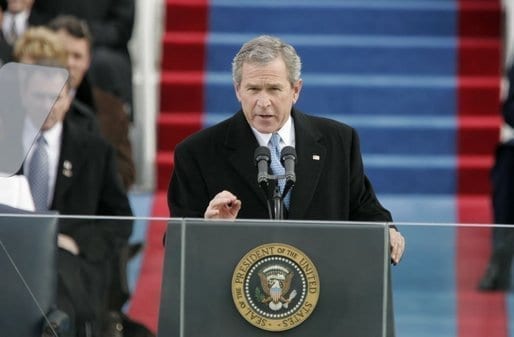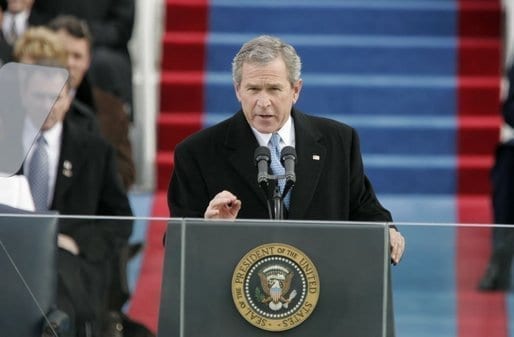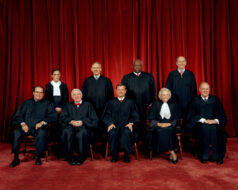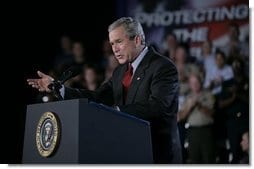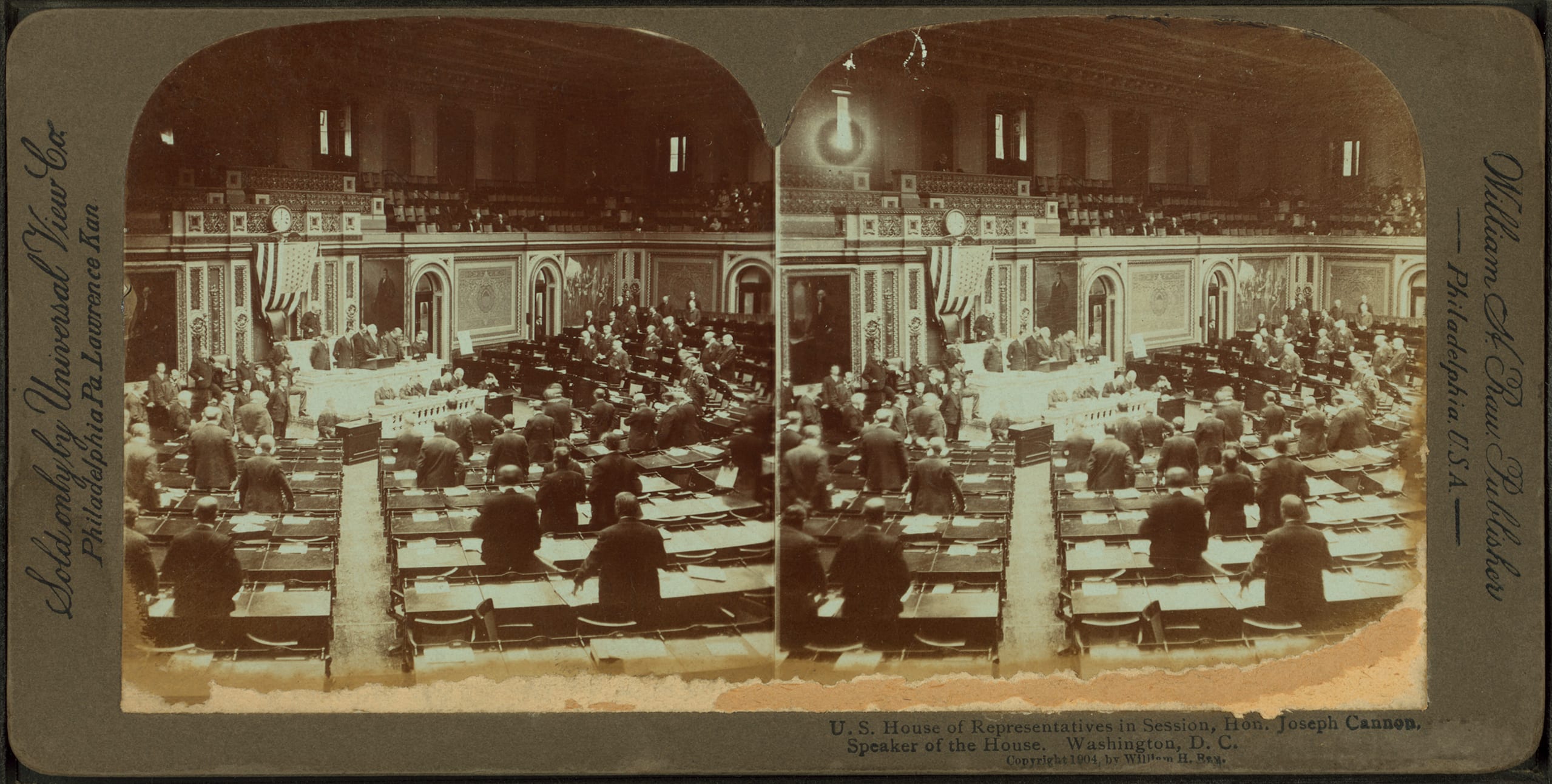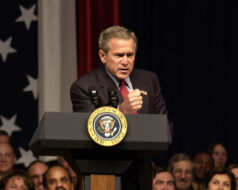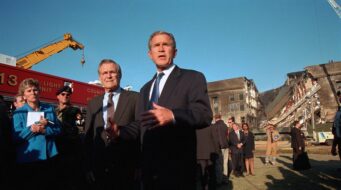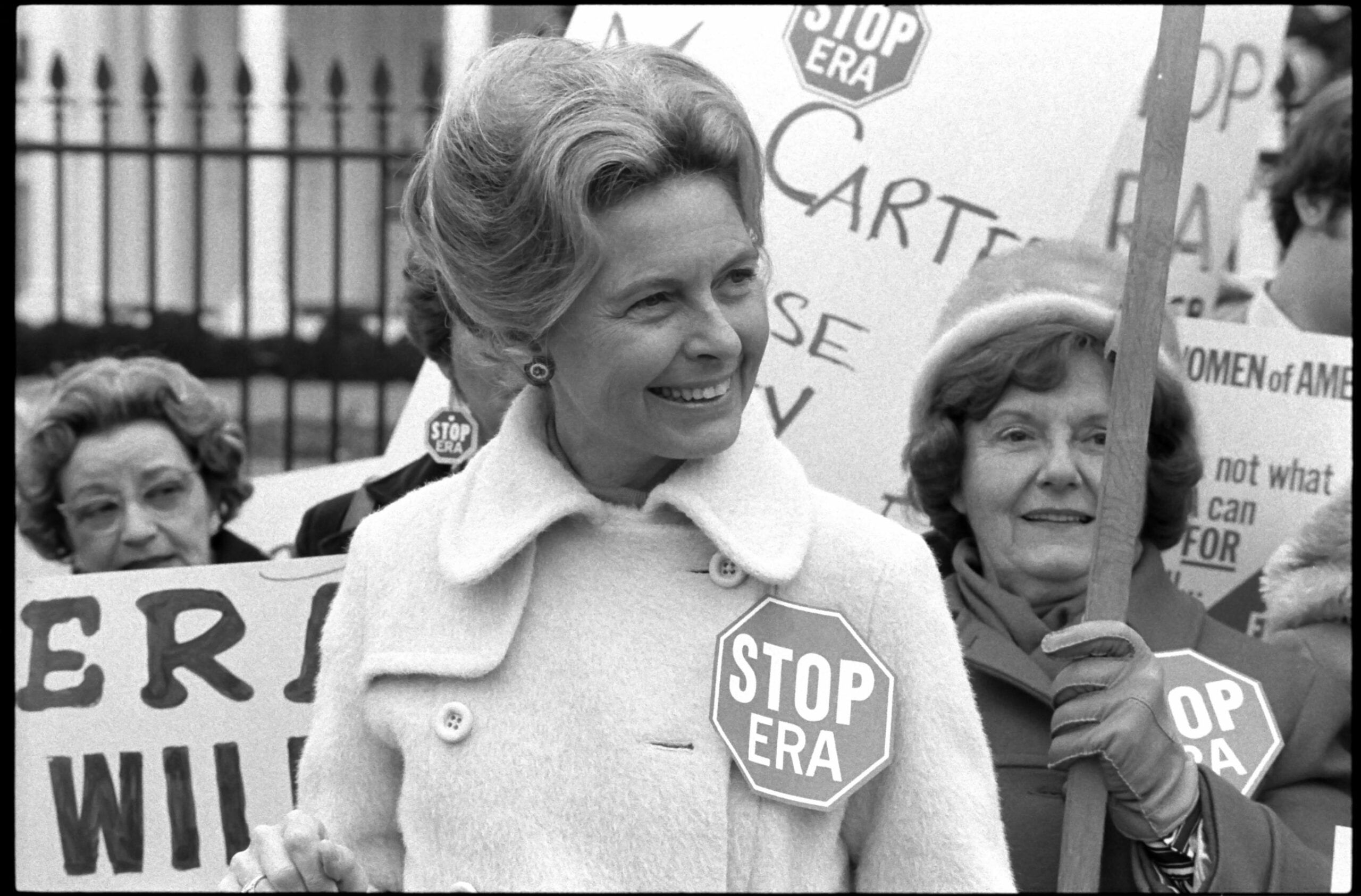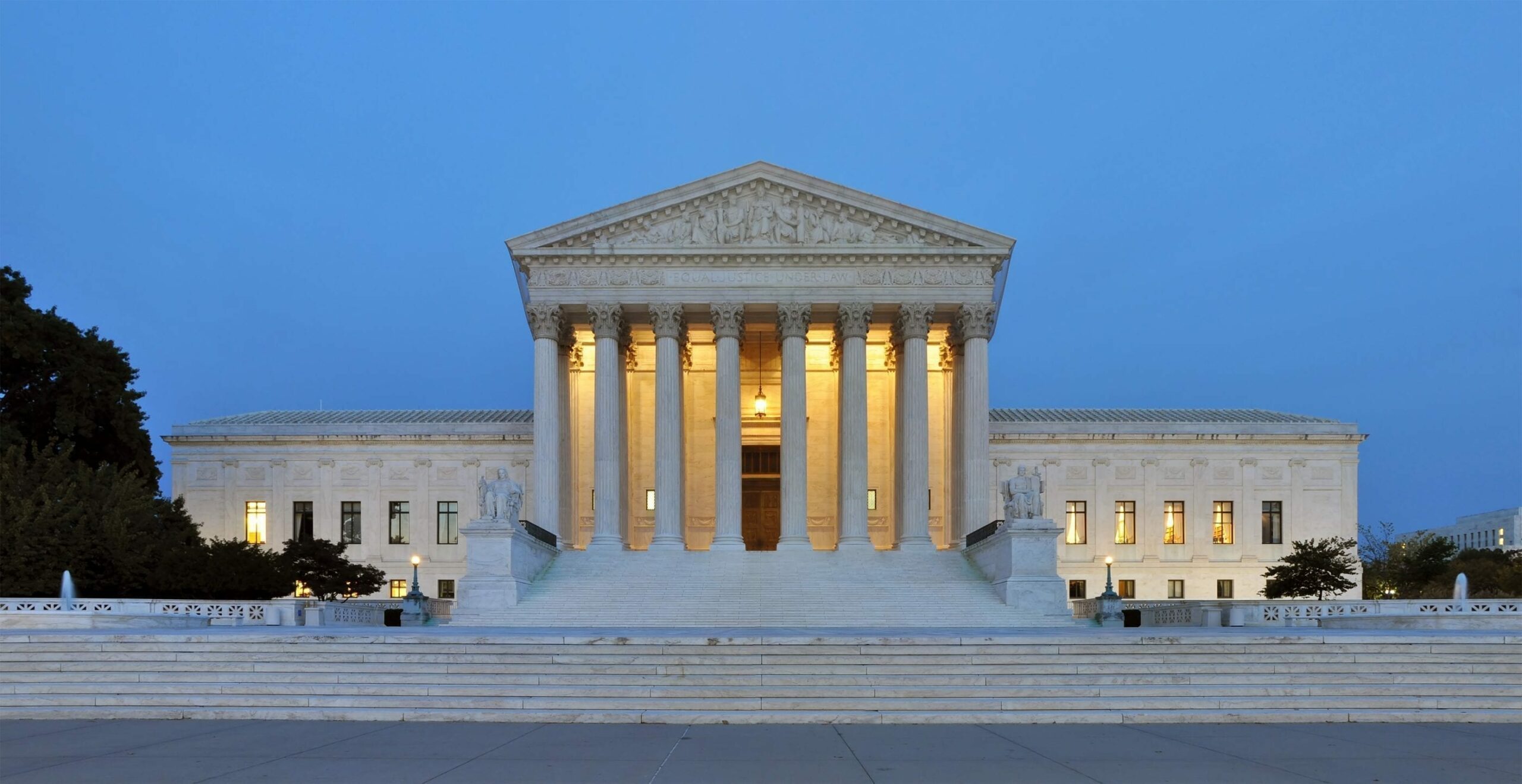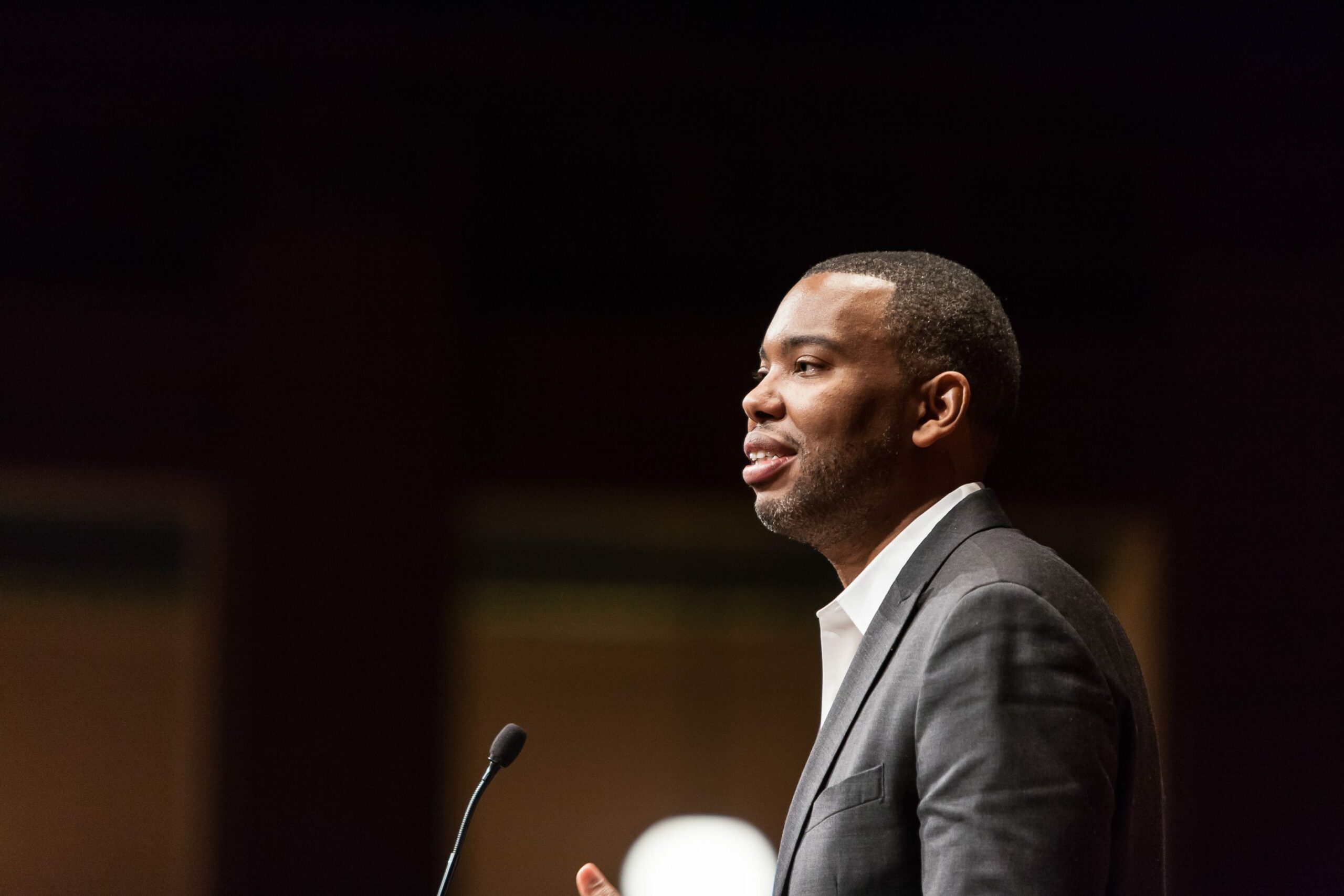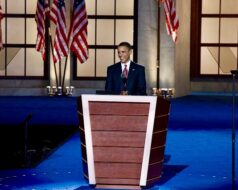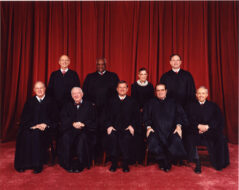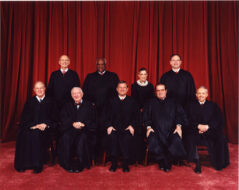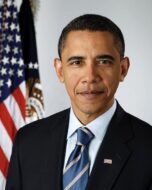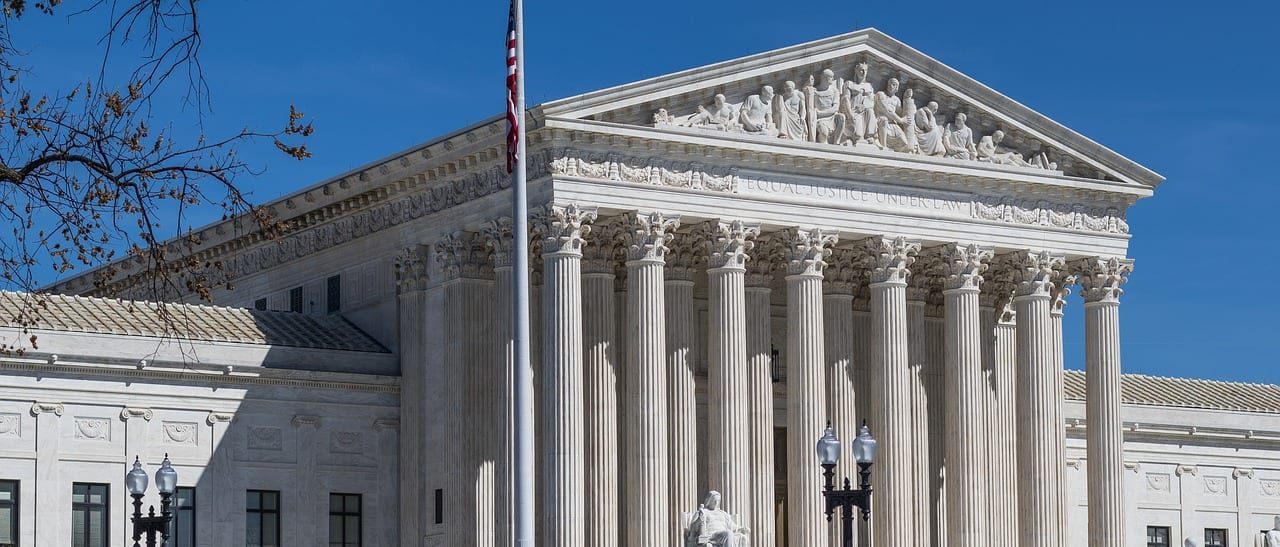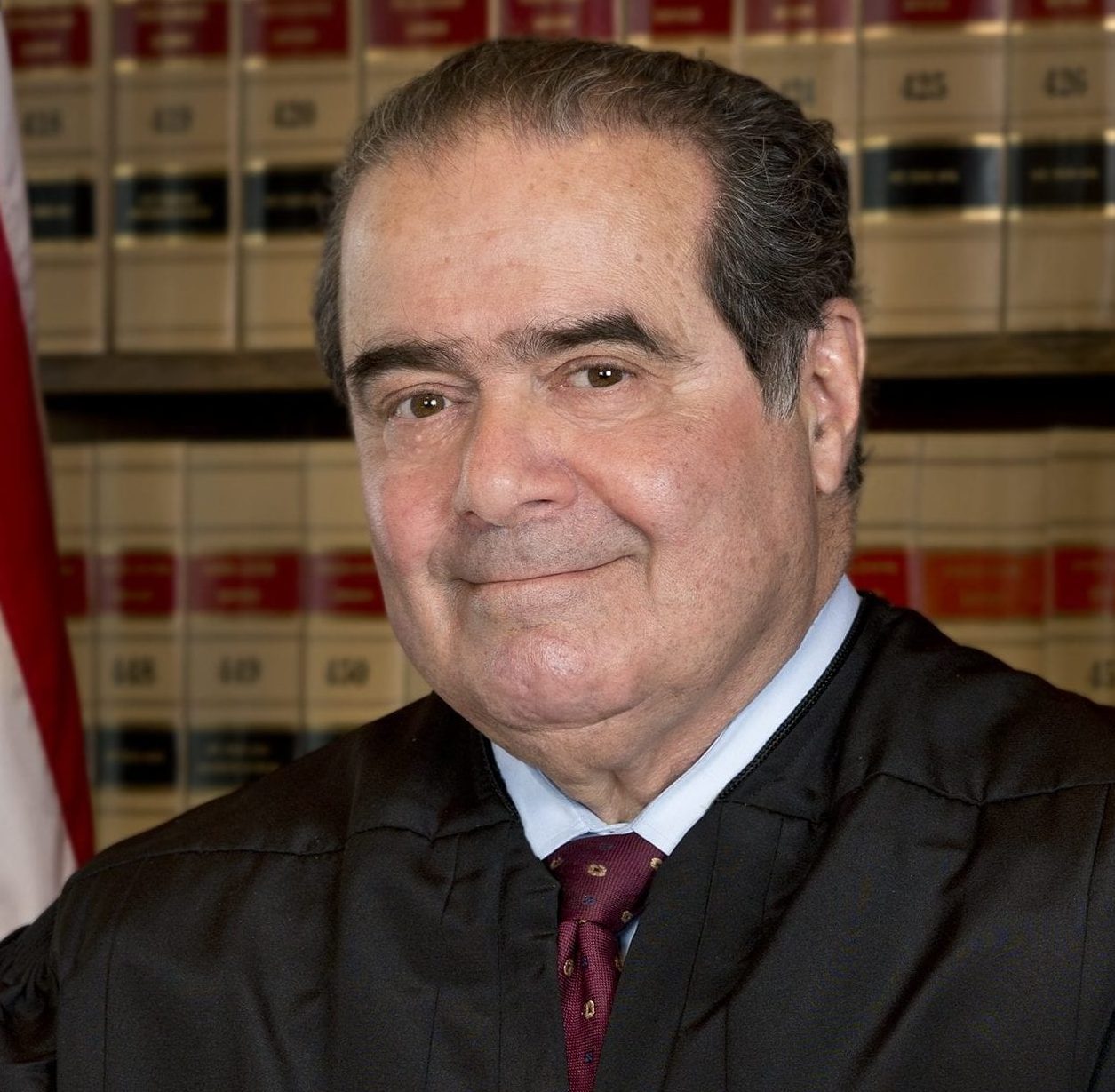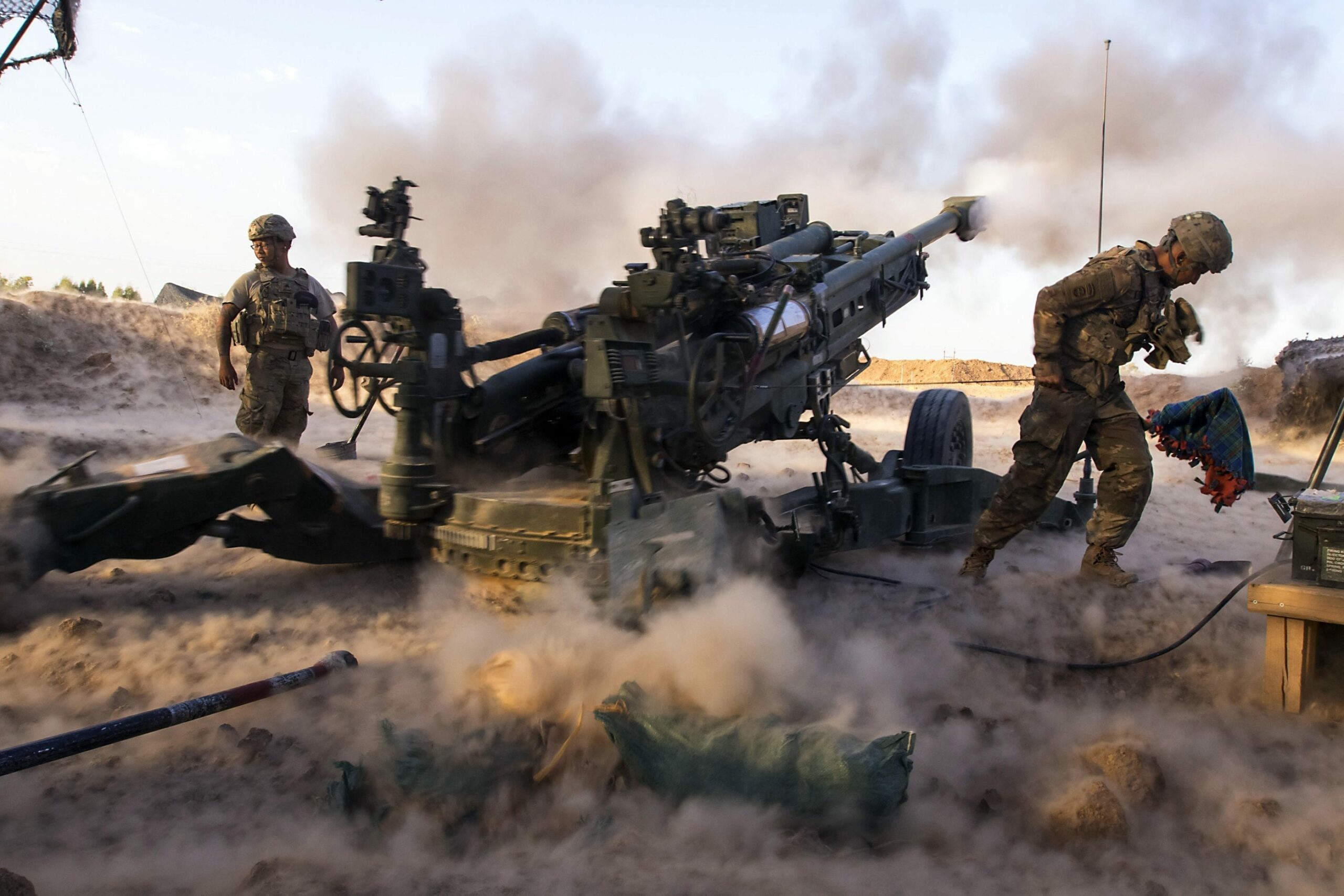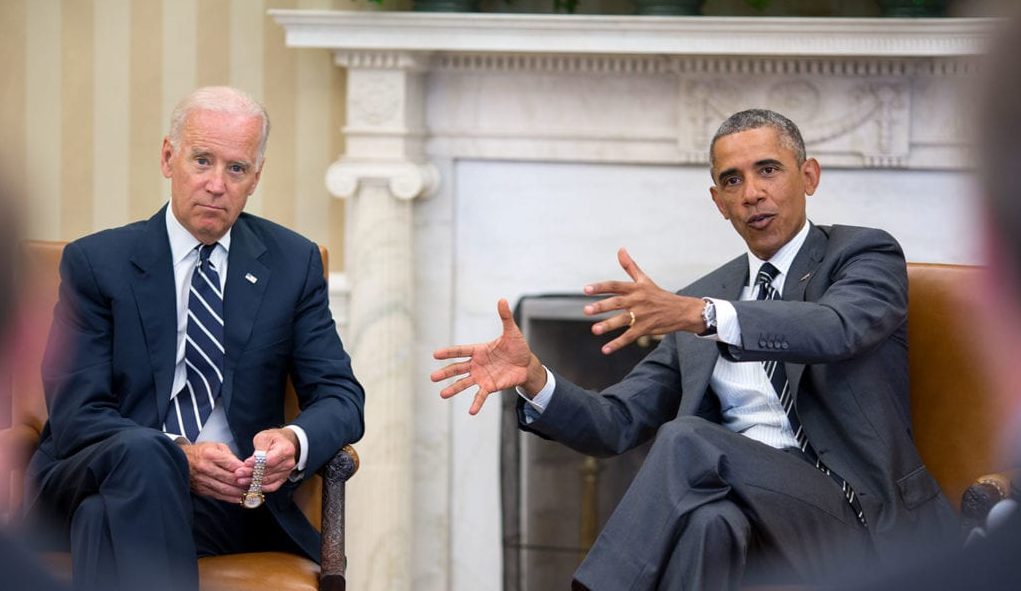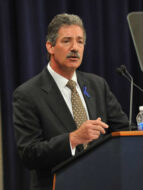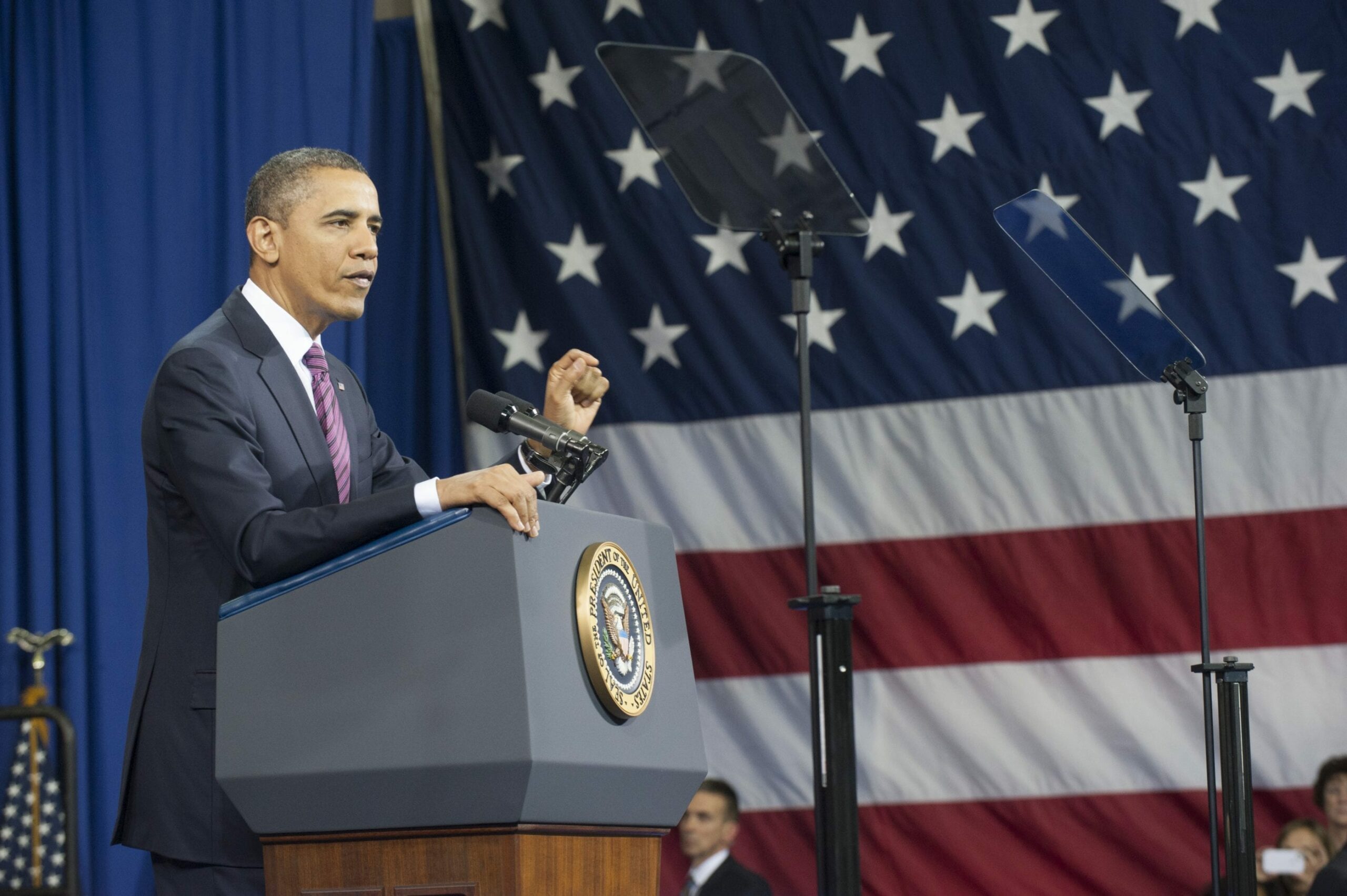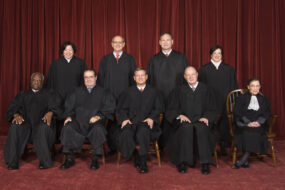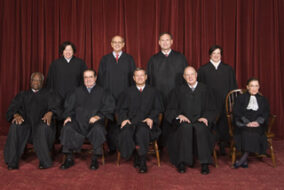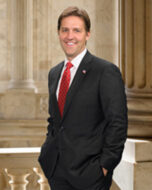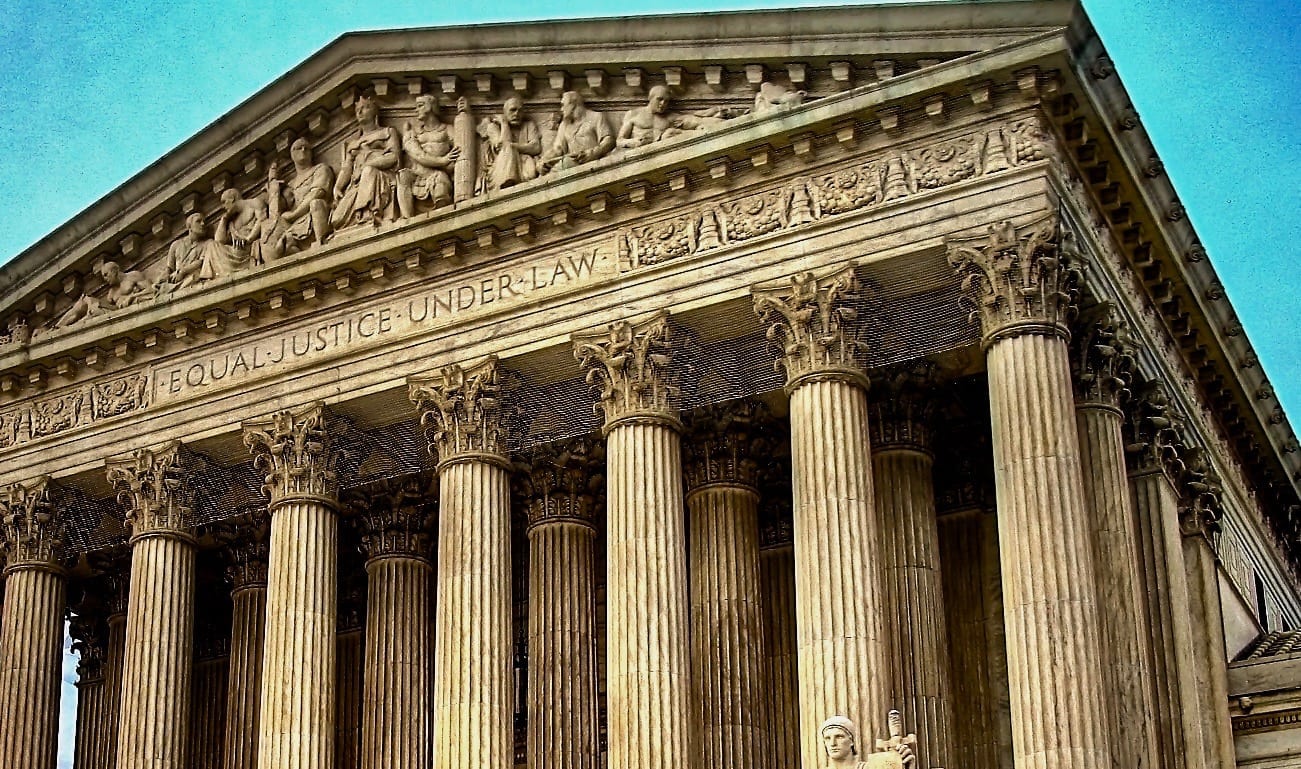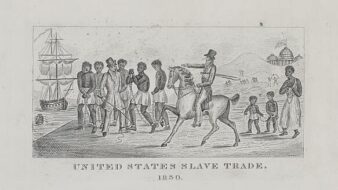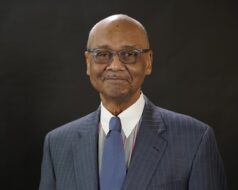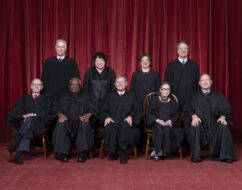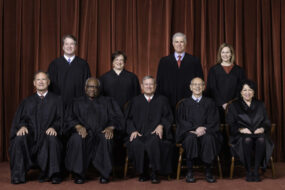
No study questions
No related resources
Introduction
The end of the Cold War (1947–1991) ushered in a new era in international relations and raised the question of how the United States should deal with the post-Cold War world. Like his immediate predecessors, President George W. Bush argued that the United States should promote democracy for America’s sake and for the benefit of the world. This included a global struggle against the people and ideas that sponsored the attacks on the United States on September 11, 2001. No less committed to protecting the United States and promoting democracy, President Barack Obama sought a different approach to Islam and less commitment overseas. Senator Rand Paul dissented from the consensus that he argued included both Bush and Obama. Denying he was an isolationist, Paul argued for greater restraint politically, militarily, and financially than he felt recent administrations of either party had shown.
The text is from a speech delivered by Senator Paul at the Heritage Foundation. The audio is available at https://goo.gl/eCsHJo.
I got the idea for this speech when I read a book about George Kennan.1 . . . The topic of the speech is containment and radical Islam.
Foreign policy is uniquely an arena where we should base decisions on the landscape of the world as it is, not as we wish it to be. I see the world as it is. I am a realist, not a neoconservative, nor an isolationist.2
When candidate John McCain3 argued in 2007 that we should remain in Iraq for 100 years, I blanched and I wondered what the unintended consequences of prolonged occupation would be. But McCain’s call for a hundred year occupation does capture some truth: that the West is in for a long, irregular confrontation not with terrorism, which is simply a tactic, but with Radical Islam.
As many are quick to note, the war is not with Islam but with a radical element of Islam – the problem is that this element is no small minority but a vibrant, often mainstream, vocal and numerous minority. Whole countries, such as Saudi Arabia, Pakistan and Afghanistan, where we presided over a constitution written by “moderates,” adhere to at least certain radical concepts, such as the death penalty for blasphemy, conversion, or apostasy. A survey in Britain after the subway bombings showed 20% of the Muslim population in Britain approved of the violence.
Some libertarians4 argue that western occupation and intervention fans the flames of radical Islam – I agree. But I don’t agree that absent western occupation that radical Islam “goes quietly into that good night.”5 I don’t agree with [President Franklin D. Roosevelt’s Vice-President] Henry Wallace that the Soviets (or Radical Islam in today’s case) can be discouraged by “the glad hand and the winning smile.”6
Americans need to understand that Islam has a long and perseverant memory. As Bernard Lewis writes, “the general level of historical knowledge in American society is abysmally low. The Muslim peoples, like everyone else in the world, are shaped by their history, but unlike some others, they are keenly aware of it.”
Radical Islam is no fleeting fad but a relentless force. Though at times stateless, radical Islam is also supported by radicalized nations such as Iran. Though often militarily weak, radical Islam makes up for its lack of conventional armies with unlimited zeal.
For Americans to grasp the mindset of radical Islam we need to understand that they are still hopping mad about the massacre at Karbala some thirteen hundred years ago.7 Meanwhile, many Americans seem to be more concerned with who is winning Dancing with the Stars. Over 50 percent of Americans still believe Iraq attacked us on 9/11.
Until we understand the world around us, until we understand at least a modicum of what animates our enemies, we cannot defend ourselves and we cannot contain our enemies.
To understand how we will contain radical Islam, we need to understand the longest, most dangerous war in our history, the Cold War. In February 1946, George Kennan sent a five thousand word telegram heard round the world. The Long Telegram gained him instant and near universal fame, as it called for containment of the Soviet Union. . . .
I think all of us have the duty to ask where are the Kennans of our generation? When foreign policy has become so monolithic, so lacking in debate that Republicans and Democrats routinely pass foreign policy statements without debate and without votes, where are the calls for moderation, the calls for restraint?
Anyone who questions the bipartisan consensus is immediately castigated, rebuked and their patriotism challenged. . . .
Containment, though, should be discussed as an option with regard to a larger threat, the more generalized threat from radical Islam. Radical Islam, like communism, is an ideology with far reach and will require a firm and patient opposition. . . .
. . . [T]he concept of containment succinctly described a strategy . . . “a path between the appeasement that had failed to prevent WWII and the alternative of a third world war.”
What the United States needs now is a policy that finds a middle path. A policy that is not rash or reckless. A foreign policy that is reluctant, restrained by Constitutional checks and balances, but does not appease. A foreign policy that recognizes the danger of radical Islam but also the inherent weaknesses of radical Islam. A foreign policy that recognizes the danger of bombing countries on [the assumption of] what they might someday do. A foreign policy that requires, as Kennan put it, “a long term, patient but firm and vigilant containment of . . . expansive tendencies.” A policy that understands the “distinction between vital and peripheral interests.”
No one believes that Kennan was an isolationist but Kennan did advise that non-interference in the internal affairs of another country was, after all, a long-standing principle of American diplomacy that should be excepted only when “there is a sufficiently powerful national interest” and when “we have the means to conduct such intervention successfully and can afford the cost.”
In Kennan’s famous X article8 he argues that containment meant the “application of counter-force at a series of constantly shifting geographical and political points, corresponding to the shifts and maneuvers of Soviet policy.” He later clarified, though, that did not necessarily mean that the application of counter-force had to mean a military response. He argued that containment was not a strategy to counter “entirely by military means.” “But containment was not diplomacy [alone] either.”
Like communism, radical Islam is an ideology with worldwide reach. Containing radical Islam requires a worldwide strategy like containment. It requires counterforce at a series of constantly shifting worldwide points. But counterforce does not necessarily mean large-scale land wars with hundreds of thousands of troops, nor does it always mean a military action at all.
Kennan objected to the Truman Doctrine’s9 “implied obligation to act wherever Soviet aggression or intimidation occurred, without regard to whether American interests were at stake or the means existed with which to defend them.” He was also concerned that the Truman doctrine was “a blank check to give economic and military aid to any area in the world.”
Likewise, today’s “Truman” caucus wants boots on the ground and weapons in the hands of freedom fighters everywhere, including Syrian rebels. Perhaps we might want to ask the opinion of the one million Syrian Christians, many of whom fled Iraq after our Shiite allies were installed. Perhaps, we might want to ask: Will the Syrian rebels respect the rights of Christians, women, and other ethnic minorities?
In the 1980s, the war caucus in Congress armed bin Laden and the mujaheddin in their fight with the Soviet Union.10 In fact, it was the official position of the State Department to support radical jihad against the Soviets. We all know how well that worked out.
Out of the Arab Spring11 new nations have emerged. While discussion of Iran dominates foreign affairs, I think more time should be allotted to whether we should continue to send aid and weapons to countries that are hostile to Israel and to the United States. I, for one, believe it is unwise to be sending more M1 tanks and F-16 fighters to Egypt.
Kennan argued that “integrating force with foreign policy did not mean ‘blustering, threatening, waving clubs at people and telling them if they don’t do this or that we are going to drop a bomb on them.’” But it did mean maintaining “a preponderance of strength.”
Kennan wrote, “The strength of the Kremlin lies in the fact that it knows how to wait. But the strength of the Russian people lies in the fact that they know how to wait longer.” Radical Islam’s only real strength is just such an endless patience. They know we eventually will leave. They simply wait for us to leave. We cannot afford endless occupation, but this does not mean that by leaving we cannot and will not still contain radical Islam. . . .
Strategic ambiguity is still of value. The world knows we possess an enormous ability of nuclear retaliation. Over 60 years of not using our nuclear weapons shows wise restraint. But for our enemies to be uncertain what provocation may awaken an overwhelming response, nuclear or conventional, is an uncertainty that still helps to keep the peace.
I recognize that foreign policy is complicated. It is inherently less black and white to most people than domestic policy. I think there is room for a foreign policy that strikes a balance.
If for example, we imagine a foreign policy that is everything to everyone, that is everywhere all the time, that would be one polar extreme. Likewise if we imagine a foreign policy that is nowhere any of the time and is completely disengaged from the challenges and dangers to our security that really do exist in the world – well, that would be the other polar extreme.
There are times, such as existed in Afghanistan with the bin Laden terrorist camps, that do require intervention. Maybe, we could be somewhere, some of the time and do so while respecting our Constitution and the legal powers of Congress and the Presidency. . . .
I’d argue that a more restrained foreign policy is the true conservative foreign policy, as it includes two basic tenets of true conservatism: respect for the Constitution and fiscal discipline.
I am convinced that what we need is a foreign policy that works within these two constraints, a foreign policy that works within the confines of the Constitution and the realities of our fiscal crisis. Today in Congress there is no such nuance, no such moderation of dollars or executive power. . . .
[James] Madison wrote, “The Constitution supposes what history demonstrates, that the executive is the branch most prone to war and most interested in it, therefore the Constitution has with studied care vested that power in the legislature.”12 We have forgotten this.
Since the Korean War, Congress has ignored its responsibility to restrain the President. Congress has abdicated its role in declaring war.
What would a foreign policy look like that tried to strike a balance? First, it would have less soldiers stationed overseas and less bases. Instead of large, limitless land wars in multiple theaters, we would – when necessary – target our enemy and strike with lethal force.
We would not presume that we build nations nor would we presume that we have the resources to build nations. Many of the countries formed after WWI are collections of tribal regions that have never been governed by a central government and may, in fact, be ungovernable.
When we must intervene with force, we should attempt to intervene in cooperation with the host government. Intervention against the will of another nation is war, such as in Afghanistan or Libya, and it should require a declaration of war by Congress. Such constitutional obstacles purposefully make it more difficult to go to war. That was the Founders’ intention: To make war less likely.
We did not declare war or authorize force to begin war with Libya. This is a dangerous precedent. In our foreign policy, Congress has become not even a rubber stamp but an irrelevancy. With Libya, the president sought permission from the UN… from NATO… from the Arab League – everyone but the US Congress! And how did Congress react? Congress let him get away with it.
The looming debt crisis will force us to reassess our role in the world. . . .
It is time for all Americans, and especially conservatives, to become as critical and reflective when examining foreign policy as we are with domestic policy. Should our military be defending this nation or constantly building other nations? What constitutes our actual “national defense” and what parts of our foreign policy are more like an irrational offense? It is the soldier’s job to do his duty – but it is the citizen’s job to question their government – particularly when it comes to putting our soldiers in harm’s way.
And of course, the question we are forced to ask today is, can we afford this?
I hope such questions begin to be asked and we see some sort of return to a constitutional foreign policy. I hope this occurs before the debt crisis occurs and not amidst a crisis. To that end, I will fight to have a voice for those who wish to see a saner, more-balanced approach to foreign policy.
- 1. George Kennan (1904–2005) was an American diplomat and the author of the containment policy. See Chapter 24.
- 2. Neo-conservatives are those, often former liberals, who have come to mistrust certain liberal policy preferences. In foreign policy, neo-conservatives tend to believe that the United States must be active in the world and promote democracy for the sake of both the United States and the world. Isolationists are those who believe that the United can and should, for its own sake, limit its involvement in the world.
- 3. Senator John McCain (AZ-R) was the Republican candidate for President in 2008.
- 4. those who make individual freedom a priority and therefore wish to limit the power of government
- 5. Rand quotes from a poem by Dylan Thomas, “Do Not Go Gentle into that Good Night.”
- 6. Kennan attributed these words to Wallace.
- 7. The battle of Karbala (680 CE) was part of the succession struggle that followed the death of Mohammed. Mohammed’s grandson, Husayn, was killed in the battle, in which the forces of Yazid I triumphed. Shia and Sunni Muslims continue to hold different interpretations of the significance of Husayn’s death.
- 8. Kennan adapted his telegram for publication in Foreign Affairs, where it appeared in 1947 as “The Sources of Soviet Conduct.” The author of the article was given as Mr. X.
- 9. See Chapter 24.
- 10. Mujaheddin was a word applied to those in Afghanistan who fought against the Soviet occupation of the country (1979–1989). It derives from the Arabic word jihad, which means struggle and typically implies war or conflict. There is no evidence that arms or support went to bin Laden or his organization al Qaeda.
- 11. A term used to denote protests calling for democratic reform in Arab countries that began in late 2010 and ran through the following spring.
- 12. This is a paraphrase of a passage in a letter that Madison wrote to Thomas Jefferson, April 2, 1798.

Conversation-based seminars for collegial PD, one-day and multi-day seminars, graduate credit seminars (MA degree), online and in-person.


